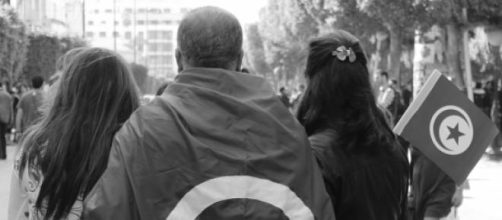The Islamic State terrorist group praised the two attackers responsible for the siege of Tunisia’s biggest museum in the capital Tunis.
An audio recording published online claimed responsibility for the acts and called the perpetrators “knights of the Islamic State,” according to Reuters.
Nine people have been arrested in connection to the events.Twenty-three people have been reported dead by the Tunisian authorities, including 18 tourists. Three Tunisian nationals were killed in the attack, including a police officer, and both gunmen were shot dead.
According to Prime Minister Habib Essid, five of the tourists killed were Japanese, four of them were Italian, two Colombian, two Spanish, one Polish, one French and one of the tourist’s identity has not been verified.
Marches across Tunisia are planned on Thursday after it was revealed that one of the gunmen in the Borda Museum terrorist attack in Tunis was known to the security services.
After the siege ended on Wednesday, thousands took it to one of the capital’s main streets, Avenue Habib Bourguiba, to protest.
The two gunmen have been named as Yassine Laabidi, reportedly flagged by the secret services, but without any known connections to militant groups and Hatem
Dr Imad El-Anis, expert in North African politics at Nottingham Trent University, said: "The Bardo Museum attacks have shaken the confidence in what has been seen as the success story of the Arab Spring so far: Tunisia's largely peaceful transition to democracy.
“Yet while the attack is making headlines around the world as an unexpected turn for the worse, the Tunisian masses have been exemplary in uniting in their condemnation of extremism.
"Yesterday's tragedy will serve to strengthen the resolve of both the Tunisian people and their government, as well as others from North Africa and the Middle East, as they stand up
Reflecting this resolve, Tunisia's President Essebsi has vowed to wage a 'merciless war against Terrorism', and it should not be forgotten that Tunisia has already been engaged in such a war since 2011 and has had, for the most part, been successful. Nevertheless, it will take some time for the international community to regain trust in Tunisia's ability to protect its own citizens and foreign visitors until its war on terrorism is won.

